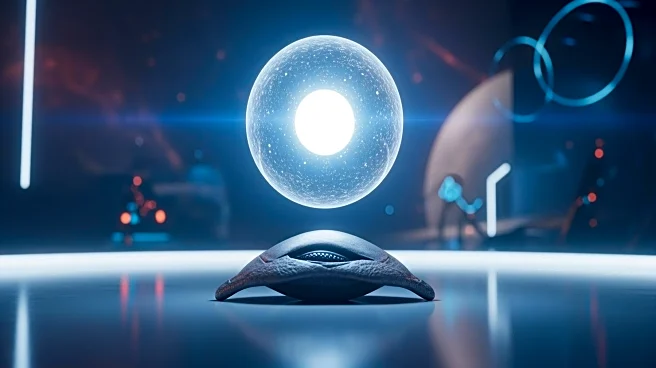What's Happening?
The upcoming Metroid Prime 1-3: A Visual Retrospective art book, featuring insights from producer Kensuke Tanabe, has sparked discussions among fans regarding a potential Metroid Prime 2: Echoes remake.
The art book provides extensive information about the original trilogy, and Tanabe's comments on Echoes' multiplayer mode have led to mixed interpretations. While Tanabe suggests that a remake is not currently in development, his remarks also hint at the possibility of future interest in revisiting the game. This has left fans speculating about the likelihood of a remake, especially in light of the upcoming release of Metroid Prime 4: Beyond, scheduled for December 4, 2025.
Why It's Important?
The speculation surrounding a Metroid Prime 2: Echoes remake is significant for the gaming community, particularly fans of the Metroid series. A remake could potentially introduce the game to a new audience and enhance the experience with modern technology. The comments from Tanabe, while not confirming a remake, suggest that there is interest in revisiting the game, which could influence Nintendo's future decisions. The anticipation for Metroid Prime 4: Beyond adds to the excitement, as fans eagerly await new developments in the series. The art book's revelations could impact Nintendo's strategy and fan expectations.
What's Next?
As fans continue to speculate, the focus remains on the upcoming release of Metroid Prime 4: Beyond. The art book's insights may lead to increased interest and discussions within the gaming community, potentially influencing Nintendo's future plans for the Metroid series. If a remake of Echoes is considered, it could follow the release of Metroid Prime 4, offering fans a refreshed experience of the classic game. The gaming community will likely keep a close watch on any announcements from Nintendo regarding the series.
Beyond the Headlines
The discussion around a potential Echoes remake highlights the enduring popularity and cultural impact of the Metroid series. It raises questions about the preservation and modernization of classic games, and how they can be adapted for contemporary audiences. The art book serves as a reminder of the series' legacy and the importance of maintaining its quality and appeal. This situation underscores the balance between nostalgia and innovation in the gaming industry.









